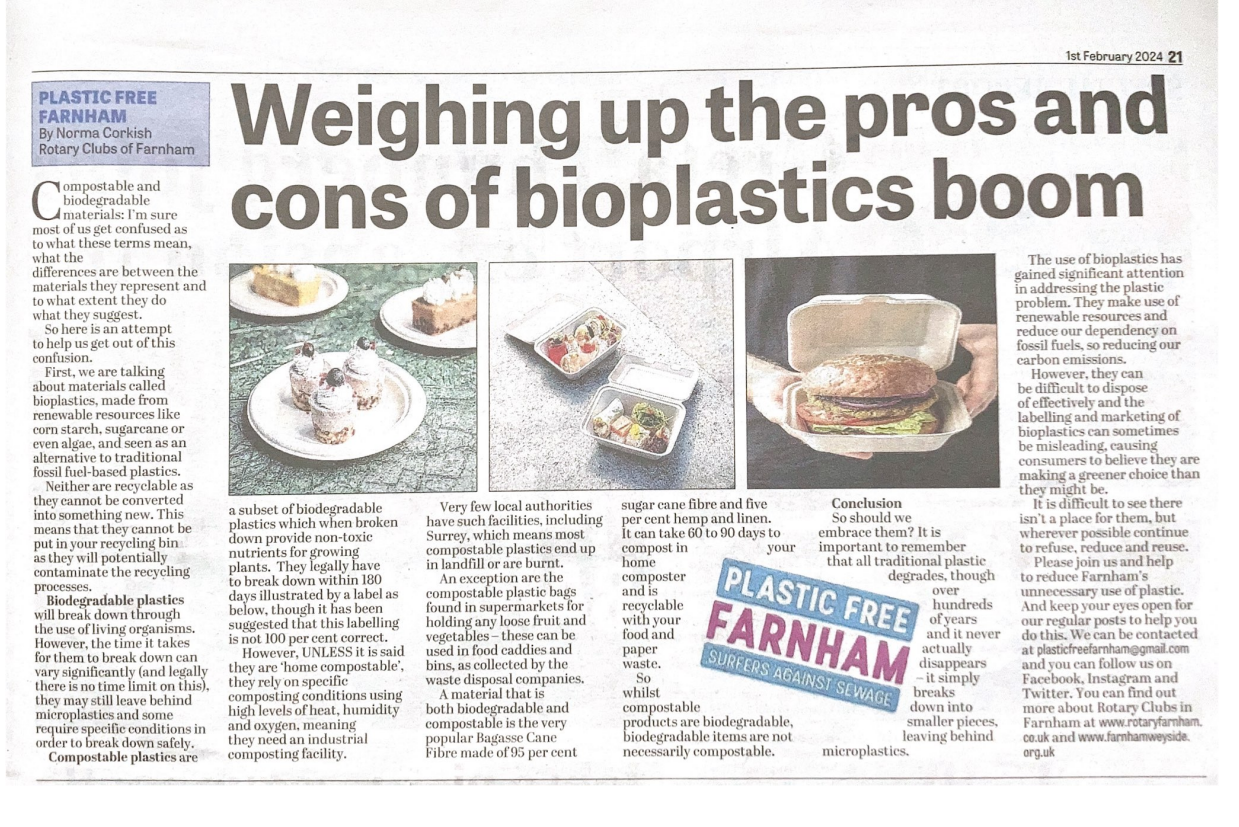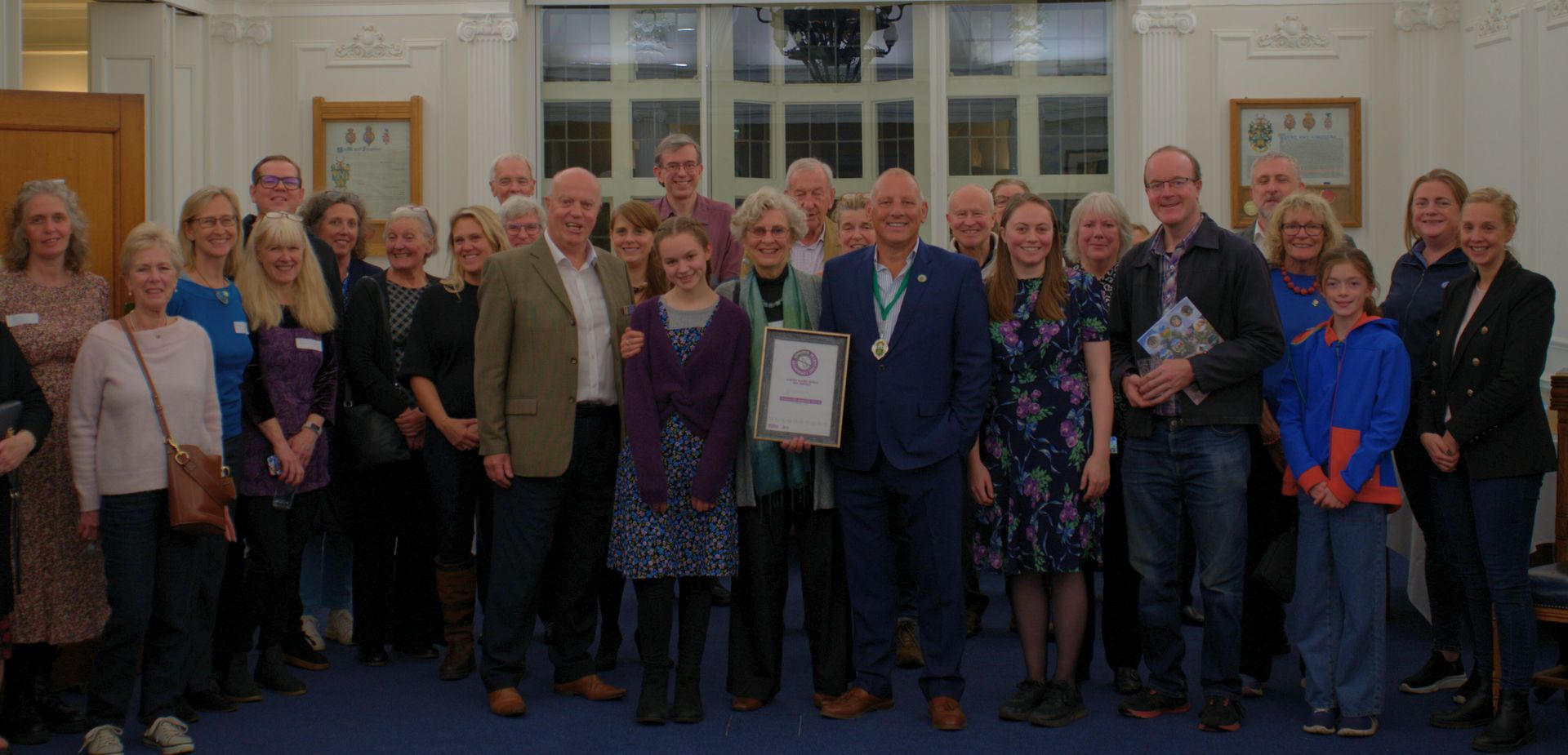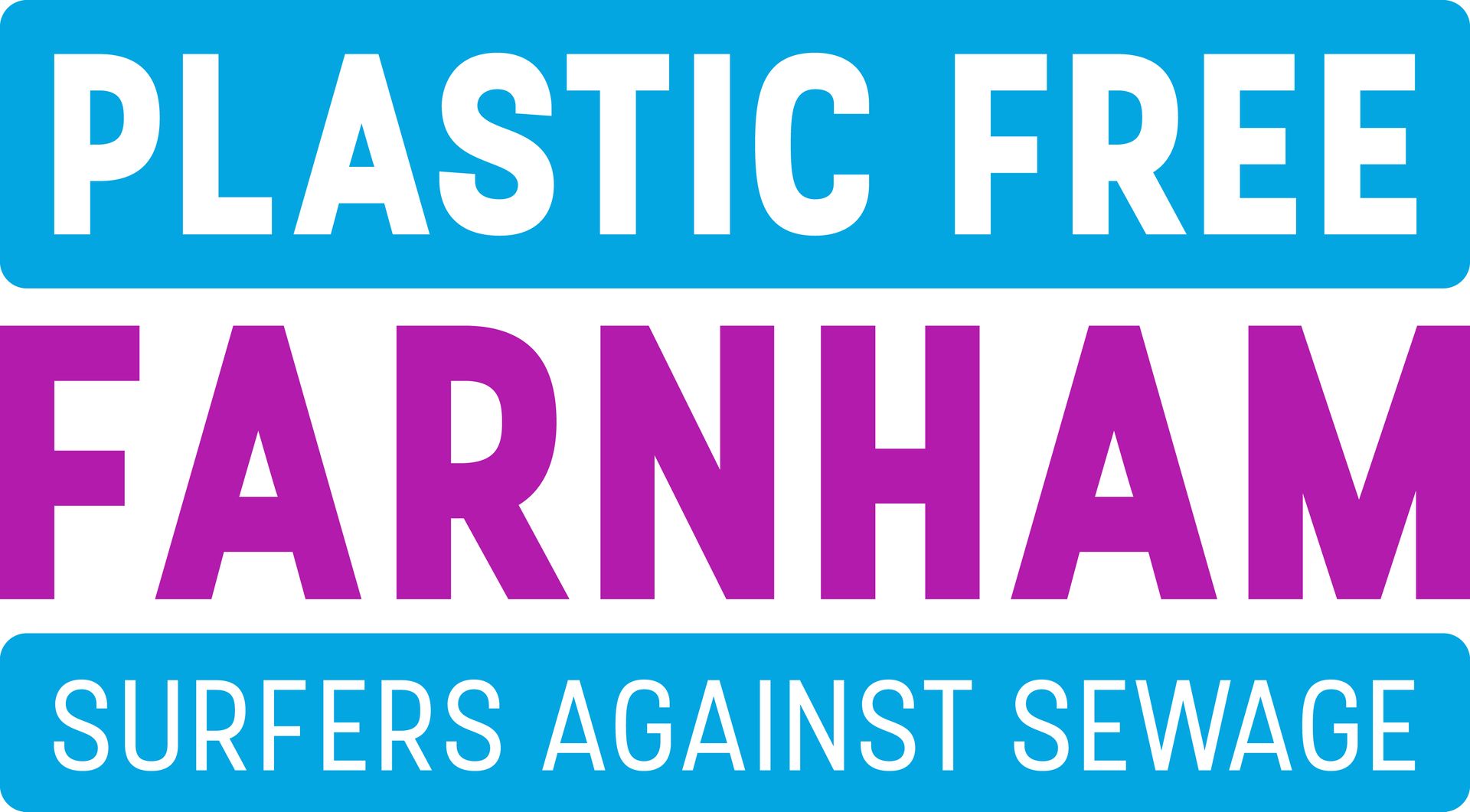Weighing up the pros and cons of the bioplastics boom
Weighing up the pros and cons of bioplastics boom

Compostable and Biodegradable materials We're sure that most of us get confused as to what these terms mean especially when it comes to plastic, what the differences are between the materials they represent and to what extent are they sustainable and do what they suggest.
So here is an attempt to help us get out of this confusion regarding alternatives to plastic.
First, we are talking about materials called
bioplastics, made from renewable resources like corn starch, sugarcane or even algae, and seen as an alternative to traditional fossil fuel-based plastics. Neither are recyclable as they cannot be converted into something new. This means that they cannot be put in your recycling bin as they will potentially contaminate the recycling processes.
Biodegradable plastics will break down through the use of living organisms. However the time it takes for them to break down (biodegrade) can vary significantly (and legally there is no time limit on this), and they may still leave behind microplastics. Some also require specific conditions in order to break down safely.
Compostable plastics
are a subset of biodegradable plastics which when broken down provide non-toxic nutrients for growing plants. They legally have to break down within 180 days illustrated by their label, although it has been suggested that this labelling is not 100% correct.
However, UNLESS it is said they are ‘home compostable’, these compostable plastics rely on specific composting conditions using high levels of heat, humidity and oxygen, meaning that they need an industrial composting facility. Very few local authorities have such facilities, including Surrey, which means most compostable plastics end up in landfill or are burnt.
An exception are the compostable plastic bags found in supermarkets for holding any loose fruit and vegetables – these can be used in food caddies and bins, as collected by the waste disposal companies.
A material that is both biodegradable and compostable is the very popular Bagasse Cane Fibre made of 95% sugar cane fibre and 5% hemp and linen. It can take 60-90 days to compost in your home composter and is recyclable with your food and paper waste.
So whilst compostable plastic products are biodegradable, biodegradable plastic items are not necessarily compostable.
Conclusion
So should we embrace bioplastics as an alternative to single-use plastic? It is important to remember that all traditional plastic degrades, though over hundreds of years and it never actually disappears - it simply breaks down into smaller pieces, leaving behind microplastics.
The use of bioplastics has gained significant attention in addressing the plastic problem. They make use of renewable resources and reduce our dependency on fossil fuels, so reducing our carbon emissions. However, they can be difficult to dispose of effectively and the labelling and marketing of bioplastics can sometimes be misleading, causing consumers to believe they are making a greener choice than they might be. It is difficult to see there isn’t a place for them, but wherever possible continue to refuse, reduce, recycle, repair and reuse.
Please join us and help to reduce Farnham’s unnecessary use of plastic and especially single-use plastic.



